RSPP Special Issue Award
Elisabete Martins
Space Odyssey International Film Festival
We are so excited to share the good news with you: RSAI is organizing its first film festival! If you are a Regional Science enthusiast, join the “Space Odyssey International Film Festival” and share your passion to our discipline. Choose one of the four awards categories to address to a wide audience of non-specialists different aspects of Regional Science:
My research in Regional Science: Let us learn about your research! You could focus on the results of a specific paper, your thesis or dissertation, or even an ongoing research project or idea. Why not telling us about your preferred method and how you use it to understand regional science topics? It is your call!
What is Regional Science?: Can you answer this question by explaining to a broader audience what Regional Science is about? Or do you prefer addressing it to an initiated community? In any case, there are many people eager to learn what we do. Let them know!
Regional Science applications in the Global South: Spatial, interregional, and regional analytic approaches can be used and, if necessary, adapted, to realize much more probing attacks on regional and spatial problems in the developing world. Can you share specific case studies and/or applications of Regional Science methods to countries/regions in the Global South?
Regional Science sections and centers around the globe: Are you a proud member of a national section? Are you part of a research group engaged in the field of Regional Science? Why don’t you share the information about your section or research center? We bet many people in our community would benefit from that!
Below you can find the rules for participation in the film festival “Space Odyssey” and all the details about registration, requirements, participation and awards. For any questions, please do not hesitate to contact us at This email address is being protected from spambots. You need JavaScript enabled to view it..
Awards categories: (i) My research in Regional Science; (ii) What is Regional Science?; (iii) Regional Science applications in the Global South; (iv) Regional Science sections and centers around the globe
My research in Regional Science: Let us learn about your research! You could focus on the results of a specific paper, your thesis or dissertation, or even an ongoing research project or idea. Why not telling us about your preferred method and how you use it to understand regional science topics? It is your call!
What is Regional Science?: Can you answer this question by explaining to a broader audience what Regional Science is about? Or do you prefer addressing it to an initiated community? In any case, there are many people eager to learn what we do. Let them know!
Regional Science applications in the Global South: Spatial, interregional, and regional analytic approaches can be used and, if necessary, adapted, to realize much more probing attacks on regional and spatial problems in the developing world. Can you share specific case studies and/or applications of Regional Science methods to countries/regions in the Global South?
Regional Science sections and centers around the globe: Are you a proud member of a national section? Are you part of a research group engaged in the field of Regional Science? Why don’t you share the information about your section or research center? We bet many people in our community would benefit from that!
Rules
- PURPOSE OF THE FILM FESTIVAL
“Space Odyssey” is the first International Film Festival organized by the Regional Science International Association (RSAI), which asks all participants to tell creatively their research, discovery, or new ideas related to the field of regional science.
The participants shall create a film of a maximum duration of 4 minutes and 55 seconds. All audiovisual techniques are accepted: from cartoon to keep/stop motion, from an amateur film (shot with the phone) to a professional movie.
The submission of the films starts on 15 February 2022 and ends at midnight on 15 June 2022. From 15 April 2022, in chronological order, the films will be uploaded to the platform channel “Space Odyssey - RSAI” before verification by the Organizing Committee.
- WHO CAN PARTICIPATE
The film festival is open to students, graduates, researchers, professionals, and regional science enthusiasts of all ages, who may participate individually or in groups. All participants more than 35 years old must be members in good standing of one of the RSAI national associations. Those willing to participate that are not yet members can join RSAI through its universal membership (please contact This email address is being protected from spambots. You need JavaScript enabled to view it.). No membership requirement applies for participants less than 35 years old.
Each participant makes the RSAI and all those who help organize and conduct this competition festival, free from any liability, civil or criminal, related to the video film production and publishing. Each participant responds directly to any claim or request for damages by third parties concerning production, publishing, or distributing the video film.
By participating in the competition and submitting the videofilm, each participant confirms full and unconditional legal and material ownership of the same and the ownership of all the relevant authorizations given by all persons who, for whatever reason, are portrayed in the film clips.
- TERMS AND CONDITIONS OF PARTICIPATION
Each participant can submit only one film. Participants must submit their films through the online registration platform (available soon), by midnight on 15 June 2022, CET. Primary and secondary school students and university and graduate students will have to declare their status in the registration form. The films published on the platform channel will be introduced and closed with an image of the festival, which will contain the logos of RSAI and its supranationals, and any sponsors.
By 15 July 2022, the selected finalist films will be announced for evaluation by the public. The Panel of Judges (see point 7), after verification of the voting process, will award the prizes during the Award Ceremony at the 61st ERSA Congress in Pecs, Hungary, 23-26 August 2022.
- FILM REQUIREMENTS
The films will be used on the internet or in other public screenings and events, and it is advised to submit an HD version (1920x1080).
Films will adopt an aspect ratio 16:9. Allowed formats are: .MOV, .MPEG4, .MP4, .AVI, .WMV; Admitted Frame rate: 24, 25, 30, 48, 50, o 60; Audio codec: AAC-LC. The recommended video BitRate is 12 Mbps; The recommended audio BitRate is 384 Kbps.
The films can be submitted in any language. English captions must be provided in all films.
- AWARDS
All prizes are awarded to the film independently from the number of authors. The prize for the best films Space Odyssey 2022, in each category, consists of US$ 500. In addition to the money prizes, there is a two-year free annual membership to RSAI (for all winning authors) and a congress fee waiver (one by winning film) to be used in 2023 for one of the RSAI congresses organized by one of its supranationals (NARSC, ERSA, PRSCO, LARSA). The possible mentions do not include a money prize.
- DISCLAIMERS
Films that are found not eligible to be published or for which the authors have misconduct will be excluded or removed from the dedicated channel at any time.
Whenever the film on the paltform channel receives comments containing abusive or discriminatory content or which may offend or damage the reputation of others, the comments will be removed and blocked.
At any time, without that participants can make any claim, demand, or compensation, the RSAI reserves the right:
- not to proceed with the awarding of prizes in case no film is considered suitable or appropriate to the criteria;
- to proceed or not to proceed with the award if there is only one film in the competition;
- to suspend the contest or not to award any prize.
- THE EVALUATION PROCEDURE, THE ORGANIZING COMMITTEE, AND THE PANEL OF JUDGES
The evaluation procedure for awarding the prizes involves three stages: the first by the Organizing Committee, the second by the general public, and the third by a Panel of Judges. The members of these boards will not receive any remuneration for their activities.
All films will be evaluated for conformity to the festival requirements and suitability for online publication at the sole discretion of the Organizing Committee. Participants will be informed by email about the main steps of the video management: reception, non-conformity to requirements, requests for modifications/supplements.
In addition, the Organizing Committee will verify the absence of abusive or discriminatory content or that may offend or harm the reputation of others; irrelevant to the subject of the Video Film Festival (off-topic); promotion or supporting illegal activities or any form of crime; defamation or threats.
It will also verify the absence of personal attacks of any kind or any direct or indirect abusive comments directed at any ethnic group, political or religious minorities or specific or able to harm in any way the rights of every single individual; as well as the absence of details in the promotion of products or services, sexual content or sexual content links, trade promotion, and comments that present sensitive data in violation of the Privacy Act.
The Panel of Judges will validate the conformity of the voting process, confirming the selected films by the general public in each category and award the prizes.
During the Award Ceremony, the audience will have the opportunity to vote for their favorite candidate among the four winning films. The votes will be computed together with online votes to select the Jury Prize. The winner will receive an additional certificate.
- USE RIGHTS
Participation in the Film festival implies the transfer of usage rights of the RSAI for any online and offline promotional purposes, including events, exhibitions, and conferences, related to the theme of regional science.
More specifically, the transfer of use and property rights involves the authorization to use the audiovisual material produced and involves the grant of a license, unlimited in time in favor of the RSAI, the product material and is inclusive, but not limited to, the following rights and powers: the right of publication, the right of reproduction and with any audiovisual support, correct transcription, editing, adaptation, processing and/or reduction, the right of communication and distribution to the public or in spheres and spaces open to the public non-profit, the right to publish in electronic format via the public network, the institutional intranets and social networks.
The Film Festival participants guarantee as of now:
- audiovisual footage are originals and copyright free and/or legally bought materials, images, and sounds, for which participants have acquired all editorial rights, relieving as of now the RSAI from any claim made by third parties;
- the audiovisuals created will not include any audio or visual element that has an advertising nature, according to current regulations, or otherwise unlawful under applicable regulations;
- for individuals, possibly represented, and/or portrayed and/or interviewed in the audiovisual coverage will grant the right of exploitation of their image free of charge, assuming that the RSAI guarantee as of now that by that the use of their image rights will not result in injury or harm to the honor, reputation, and dignity of the person portrayed;
- for individuals under age, possibly represented, and/or portrayed and/or interviewed in the audiovisual footage, participants will ensure the acquisition of consent from the parent or legal tutor, be it a natural or legal person, assuming that the right of exploitation of' picture of the child will be free of charge and that as of now the RSAI guarantee that the use of image rights will not result in injury or harm to the honor, reputation, and dignity of the child;
- when submitting the audiovisual footage participants have been obtained by all subjects eventually recovered and/or present in the filming, all permissions, and clearances necessary and to be able to provide at the request of the RSAI the relevant proof documents no later than ten days from the request also made by email.
The films will not be returned and will be made available, in full or in part, by citing the authors as promotional materials of regional science culture and projections in the RSAI supranational and national sections, events fairs, and conferences.
Space Odyssey International Film Festival
Dear RSAI members,
I hope this email finds you well.
The new year starts with yet another initiative from the Association, promoted by its President, Prof. Eduardo Haddad. The RSAI is happy to announce the first edition of the RSAI Film Festival!
If you are a Regional Science enthusiast, join the “Space Odyssey International Film Festival” and share your passion to our discipline. You can choose one of the four awards categories to address for a wide audience of non-specialists different aspects of Regional Science:
My research in Regional Science: Let us learn about your research! You could focus on the results of a specific paper, your thesis or dissertation, or even an ongoing research project or idea. Why not telling us about your preferred method and how you use it to understand regional science topics? It is your call!
What is Regional Science?: Can you answer this question by explaining to a broader audience what Regional Science is about? Or do you prefer addressing it to an initiated community? In any case, there are many people eager to learn what we do. Let them know!
Regional Science applications in the Global South: Spatial, interregional, and regional analytic approaches can be used and, if necessary, adapted, to realize much more probing attacks on regional and spatial problems in the developing world. Can you share specific case studies and/or applications of Regional Science methods to countries/regions in the Global South?
Regional Science sections and centers around the globe: Are you a proud member of a national section? Are you part of a research group engaged in the field of Regional Science? Why don’t you share the information about your section or research center? We bet many people in our community would benefit from that!
Check the rules of the Space Odyssey here.
We look forward to watching your movies soon,
Kind regards,
Revista Portuguesa de Estudos Regionais/Portuguese Review of Regional Studies: issue N. 60 (2022) published
It is a pleasure to inform you that the issue n. 60 (January 2022) of our journal (Revista Portuguesa de Estudos Regionais / Portuguese Review of Regional Studies) is now available online. I also want to inform you that the journal has now a new website.
You can accede to the issue and the new website using the following link:
https://www.review-rper.com/index.php/rper/issue/view/60
As we can check, this issue is entirely devoted to the Pandemic CONVID-19 Impacts and has as Guest-Editors María de la Cruz del Río Rama, José Álvarez García and Amador Durán Sánchez, from two universities in Spain.
Thank you for contributing to the success of the journal. We will go on counting on you!
Best regards,
J. Cadima Ribeiro
Editor-in-Chief of RPER
The New Issue of Regional Statistics is already Available! (2022, VOL 12, No 1)
We are pleased to inform you that a new issue of the Regional Statistics has been released and now it’s avaiable online.
https://www.ksh.hu/terstat_eng_current_issue
REGIONAL STATISTICS, 2022, VOL 12, No 1.
STUDIES
Judit Kapas: Has COVID-19 caused a change in the dynamics of the unemployment rate? The case of North America and continental Europe
https://www.ksh.hu/statszemle_archive/regstat/2022/2022_01/rs120107.pdf
Katalin Antalóczy – Imre Birizdó – Magdolna Sass: Local investment promotion in a Hungarian medium-sized town and the implications of the COVID pandemic
https://www.ksh.hu/docs/hun/xftp/terstat/2021/rs120104.pdf
Evelyn Calispa Aguilar: Regional systems of entrepreneurship in 2017–2018: An empirical study in selected regions of South America
https://www.ksh.hu/statszemle_archive/regstat/2022/2022_01/rs120103.pdf
Loránt Pregi – Ladislav Novotný: Impact of migration and natural reproduction on the development of the Slovak–Hungarian ethnic boundary in eastern Slovakia, 1991–2018
https://www.ksh.hu/statszemle_archive/regstat/2022/2022_01/rs120102.pdf
Kostas Rontos –Michail Papazoglou – Maria-Eleni Syrmali – Adele Sateriano: Towards the eastern gate to Europe: Factors shaping perceptions and attitudes towards migrants in Lesvos Island (Greece), 2016
https://www.ksh.hu/statszemle_archive/regstat/2022/2022_01/rs120105.pdf
Dávid Sümeghy: Halo effect of diversification and polarization, and the role of relative deprivation based on the 2018 Swedish parliamentary elections results
https://www.ksh.hu/statszemle_archive/regstat/2022/2022_01/rs120106.pdf
Ngo Thai Hung: Return equicorrelation and dynamic spillovers between Central and Eastern European, and World*1stock markets, 2010–2019
https://www.ksh.hu/docs/hun/xftp/terstat/2021/rs120108.pdf
Mohammad M. Jaber: Analysis of selected economic factor impacts on CO2 emissions intensity: A case study from Jordan, 1990–2015
https://www.ksh.hu/statszemle_archive/regstat/2022/2022_01/rs120101.pdf
Join us to our social networking sites:
RSPP Call for Papers | Special Issue on Population imbalances in Europe
Regional Science Policy & Practice (RSPP)
Call for papers for RSPP Special Issue on Population imbalances in Europe
Edited by
Prof. Rubén Garrido Yserte (University of Alcalá, Director)
Prof. Juan R. Cuadrado Roura (University of Alcalá, Jean Monnet Chair)
Associated to Papers presented in the
SETTLE International Congress: “Population imbalances in Europe”
This Congress is part of an ERASMUS+ entitled: “Population imbalances in Europe: challenges of urban concentration versus rural depopulation” (SETTLE). It will be held on-site on 27th, 28th and 29th April 2022 at the University of Alcala (Spain); organized by the Jean Monnet Chair “Economic Policy and European Union” and the Institute for Economic and Social Analysis (IAES). The SETTLE Congress is open to researchers, academics, students, public authorities and professionals. Attendance is allowed with or without the presentation of a paper or a poster. Registration is free up to 125 participants, and includes the right for attending, presenting papers and receiving the congress papers, as well as the meals during the Congress. Among them, travel and hotel expenses will be funded up to 40 participants on restrictive and justified terms, imposed by the project regulation (the project counts on the financial support of the European Commission). Thus, the economic need, the interest of the paper and the order of reception will be considered. In this sense, posters will be less valued for allowing travel and expenses funding but will be equal considered for the right of attending and meals.
Paper proposals consisting of a summary of around 100 words must be submitted before 5th February, 2022. Accepted languages for papers writing and presentation are Spanish, English and French. Writing font is Calibri 11, 1.15 pp. Papers will be circumscribed geographically to Europe-27 and neighbor countries (though others can be included if they have an influence in the European region or can be compared to it in terms of population subjects). Focus can stem from Economics, Geography, Environmental Science, Law, History or any enabling discipline. Suggested topics are:
- Regional policy design for a balanced population
- Rural-urban proximity
- Services infrastructure and welfare for population in cities and rural areas
- Depopulation
- Entrepreneurship and university talent attraction leading to urban concentration
- Population imbalances and migration
- Environmental and legal aspects of sustainability in smart cities and depopulated areas
- Population statistics advances
- Systemic transformation and influence on population
- Others related (to be evaluated)
After the assessment of the Scientific Committee, accepted papers will be informed by end February. The final delivery for accepted papers will be 29th March 2022, for their inclusion in an electronic diffusion support. Selected papers will be published in two peer review journals: ‘RSPP’ - Regional Science Policy and Practice (ESCI and SJR) and ‘ICE’ - Información Com. Española. Both publications follow strict criteria of quality for publication.
Paper proposals should be sent to the Congress Desktop: This email address is being protected from spambots. You need JavaScript enabled to view it.
Scientific Committee local coordination team:
SETTLE Scientific Committee and Network
Congress Secretary:
Instituto Universitario de Análisis Económico y Social - IAES (University of Alcalá)
http://www.iaes.es/settle-2020.html).
Submission of complete papers to: https://rsaiconnect.onlinelibrary.wiley.com/journal/17577802, at the submission add in the cover letter that is for the Special Issue on: Population imbalances in Europe
Forthcoming ERSA 2022 Events, awards and publications' opportunities
|
|
|
|
|
|
|
|
|
|
|
|
|
|
|
|
|
|
|
|
|
|
|
|
|
|
|
|
|
|
|
|
|
|
|
|
|
|
|
|
|
|
|
|
|
Associate/Full Professor in Public Policy and Director of the Center for Geospatial Sciences University of California, Riverside
Position Announcement:
Associate/Full Professor in Public Policy and Director of the Center for Geospatial Sciences University of California, Riverside
Position Description: The School of Public Policy (SPP) at the University of California, Riverside (UCR), invites applications for Director of the Center for Geospatial Sciences (CGS) and tenured Professor (Associate or Full) in the area of Geographic Information Science (GIScience) and Public Policy. We are seeking an accomplished scholar to join the SPP faculty and provide intellectual and administrative leadership to CGS.
Established in 2017, the mission of CGS is to both carry out fundamental research in GIScience and serve as an enabling science to foster interdisciplinary research at UCR and beyond. Contained in the School of Public Policy, expansion of the reach of CGS to include collaborations with external stakeholders would be valued. CGS has successfully leveraged existing and emerging areas of strength from across UCR departments to obtain research grants from various funding agencies, including NSF, NIH, the Bill & Melinda Gates Foundation, among others. This research addresses significant challenges facing our cities, regions, nations, and planet. CGS currently has three core faculty members at the School of Public Policy and Department of Computer Science and 18 affiliates in various disciplines and research centers. CGS has dedicated space for faculty and students and state-of-the-art computing resources.
SPP faculty are committed to excellence and relevance in their public policy research. They routinely collaborate with colleagues across relevant disciplines to obtain insights into the effect and causes of public policies on society. We seek a director who values and supports such collaborations as being essential to sound public policy research. We welcome applications from geoscience scholars with interests in applications in the public policy arena on crucial issues, such as climate change, immigration, health, civil rights and racism, transportation, energy, electoral redistricting, natural resources, social justice, the environment, land use, and/or other areas relevant to public policy.
Required Qualifications: Applicants must have a Ph.D. in geography, computer science, urban planning, engineering, or another relevant discipline that emphasizes theory and applications of geographic information sciences; a strong scholarly record that supports appointment with tenure in the University; and evidence for capacity to provide leadership as a center director.
Desired qualifications: The successful candidate should possess excellent communication skills and an ability to lead research teams; an ability to compete for competitive research grants; experience/interest in engaging with external stakeholders in defining and carrying out research projects; and teaching interests at the intersection of GIScience and Public Policy.
Application and Materials: All materials must be uploaded using UCR’s online application system via https://aprecruit.ucr.edu/JPF01508. Application materials must include:
- A letter of interest that clearly describes their scholarly areas of interest and training and how it is relevant to public policy
- Curriculum vitae
- Statement of research that includes how this research prepares the applicant to lead CGS successfully
- Teaching statement and teaching evaluations or other evidence of teaching effectiveness
- Statement of contributions to diversity and inclusion
- Contact information for 5 references (extramural letters will be solicited by the University for the top candidate)
To ensure full consideration, applications and supporting materials should be received by March 8, 2022. Review of applicants will continue until the position is filled. Salary will be competitive and commensurate with education and experience. The appointment will commence on July 1, 2022.
The UCR School of Public Policy: Established in 2012, the UCR School of Public Policy is one of only four public policy schools in the 10-campus UC system. It is home to the only Master of Public Policy (MPP) program offered by a major research university in inland Southern California and the only public policy school with an undergraduate public policy major in the entire University of California system. We have just launched the first public policy five-year BA-MPP program in the UC system.
Our mission is to train a new generation of forward-thinking public policy leaders equipped to address the complex, interrelated challenges of poverty, disease, illiteracy, climate change, energy security, pollution, and more. Their training is informed by (i) a diverse, interdisciplinary curriculum that emphasizes evidence-based policy research as well as cross-learning from both international and domestic problem-solving experiences, and (ii) a rich internship program that emphasizes experiential learning.
The School is located on the campus of UCR, which is a world-class research university with an exceptionally diverse undergraduate student body. Its mission is explicitly linked to providing routes to educational success for underrepresented and first-generation college students. A commitment to this mission is a preferred qualification.
The University of California is an Equal Opportunity/Affirmative Action Employer. All qualified applicants will receive consideration for employment without regard to race, color, religion, sex, sexual orientation, gender identity, national origin, age, disability, protected veteran status, or any other characteristic protected by law.
University of California COVID-19 Vaccination Program Policy
As a condition of employment, you will be required to comply with the University of California SARS-CoV-2 (COVID-19) Vaccination Program Policy. All Covered Individuals under the policy must provide proof of Full Vaccination or, if applicable, submit a request for Exception (based on Medical Exemption, Disability, and/or Religious Objection) or Deferral (based on pregnancy) no later than the applicable deadline. For new University of California employees, the applicable deadline is eight weeks after their first date of employment.
Call for Papers | 9th ICCCIA, 16-20 September 2022, Berlin, Germany
Raw materials and identities
The 2022 ICCCIA (International Iron Casting Conference) is dedicated to an artistic and art- scientific approach, as well as to social sciences’ perspectives of iron casting:
The main questions addressed will be:
- Can (raw) materials be identity-shaping for societies and regions (at least by attribution)?
- And if so, how do (raw) materials and national, regional, or local identities fit?
- What effects does the (raw) material have on societies, regions and communities?
The concept of nation/national identity is studied in various scientific disciplines and forms the basis for further research, despite its social controversy. Psychology, for example, is dealing with racist behaviour rooting in national feelings and identities. In business communication, national identities play a role in branding countries and regions. Philosophy, political sciences, natural sciences and history studies, all, approach (national) identities in different ways.
If we look at the European countries, we notice that their external perceptions have something to do with raw materials rather often. We hear Russia, we think of cold winters and gas. Brazil is currently mostly portrayed as a country of rainforests that has to decide between soy and animal production, the timber industry and environmental protection. In Germany, when we think of Ukraine, the buzzword "granary" comes up, just as Polish hard coal is a well-known term for us.
But is gas also a source of identity for the Russians, grain for the Ukrainians, and coal for the Poles?
Especially in mining and agricultural regions, there is a high potential of identification with raw material production within the local population. The fact that these focal points still exist in the countries mentioned, but that the owners and operators come from completely different nations, seems to be of less interest. This often continues even after a total shutdown of an industry, as in the Ruhr region or Niederlausitz.
Sometimes this - perhaps - outdated or unfounded sense of belonging is used deliberately by political or economic participants. The desired effect can be triggered, although the appeal to this national or regional togetherness is fundamentally corrupted. One example is the Prime Minister of Baden-Wuerttemberg, Kretschmann, who claims that in his automotive “Land” he cannot drive anything other than a Mercedes. If one considers this in terms of his party affiliation (Green), his commitment to Europe and the true composition and actions of the Mercedes Group, this statement does not seem to be without any alternative.
Nevertheless, the effect Kretschmann was targeting is likely to have occurred.
Taken as a whole, there is probably a rather regional and national attachment and responsibility in the minds and hearts of many people - despite the knowledge that Amazon, Meta and Alphabet control a huge share of economic and social exchange.
This Call for Papers and Participation is open to researchers and scholars of all disciplines who are concerned with identity in relation to spatial or other communities that are concerned with impacts of commodities on a society. Papers of all types and forms are sought: From oral presentations to short papers to poster presentations, research approaches, theoretical considerations but also empirical implementations and results are the focus of this part of the conference. Single regions but also comparisons or abstract considerations can be in the focus. Contributions that deliver concrete ideas to the interdisciplinary and interactive exchange are especially welcome.
Please submit:
- extended abstracts
- with a maximum of 5000 characters (incl. spaces, but excl. bibliography)
- in pdf format
- until 15.3.2022
to: This email address is being protected from spambots. You need JavaScript enabled to view it.
More details at: https://www.iron-2022-germany.de/
NARSC Newsletter December 2021
|
|||||||||||||||||
|
|||||||||||||||||
ERSA Summer School: The Call for Application is OPEN!
|
About Us
The Regional Science Association International (RSAI), founded in 1954, is an international community of scholars interested in the regional impacts of national or global processes of economic and social change.

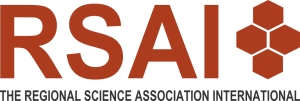
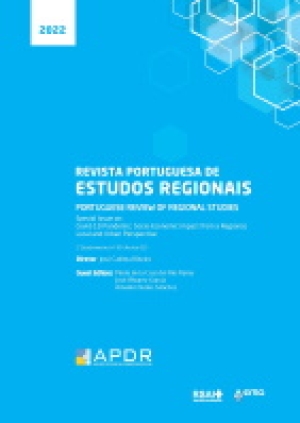
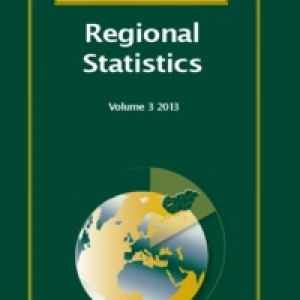
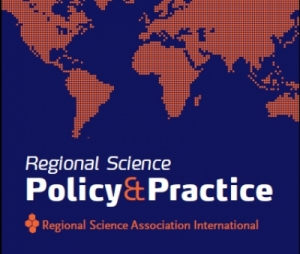




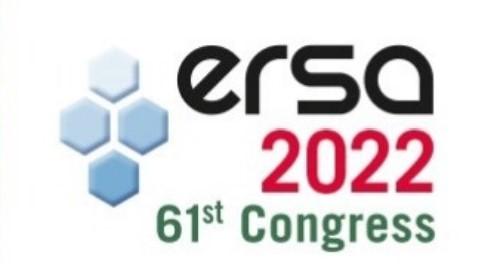






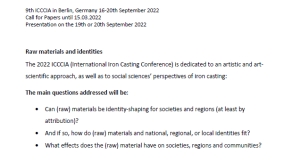
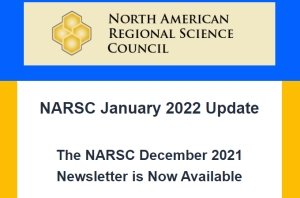


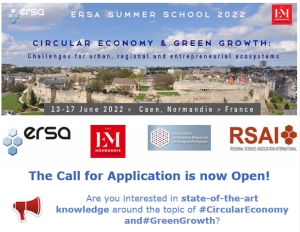



 Are you interested in state-of-the-art knowledge around the topic of #CircularEconomy and#GreenGrowth?
Are you interested in state-of-the-art knowledge around the topic of #CircularEconomy and#GreenGrowth?

 And much more with:
And much more with: